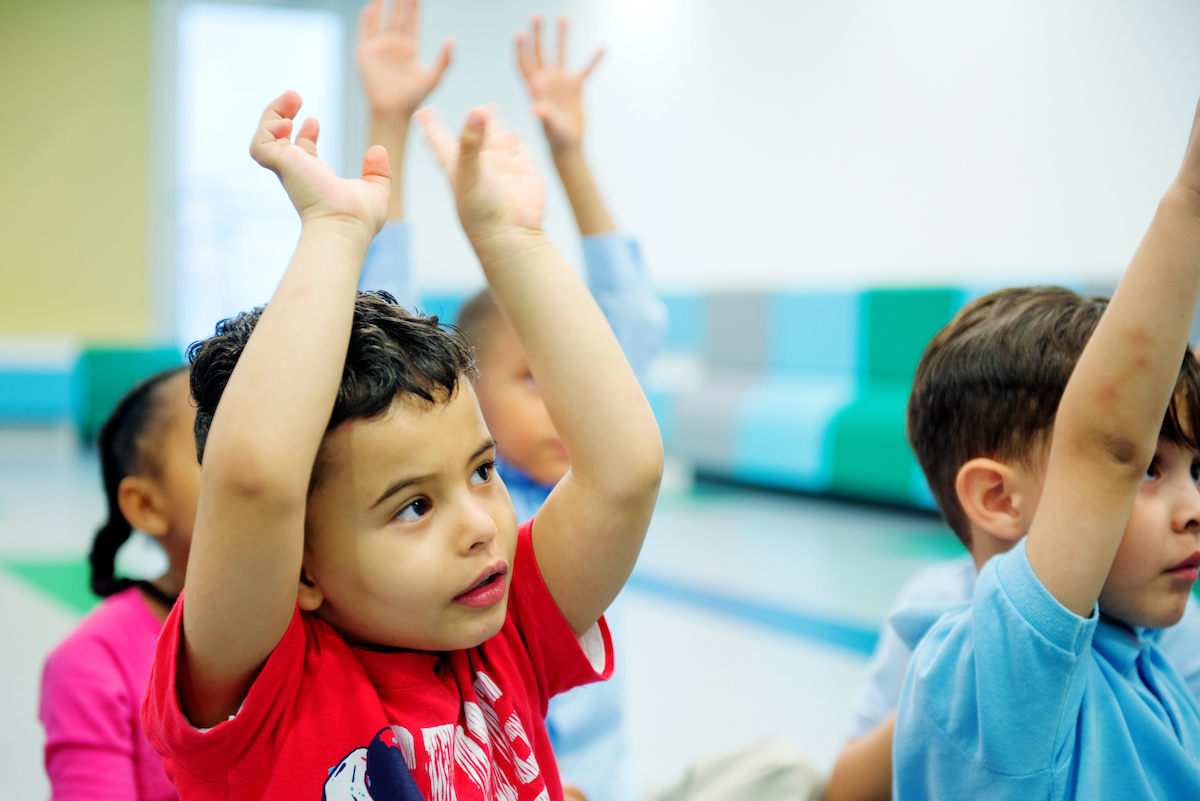 In the world of early literacy development, reading with your children matters more than reading to your children. It makes sense. When parents read with children, adults and children both become active participants—rather than passive participants—in the reading process. Try some of these early literacy tips the next time you read together!
In the world of early literacy development, reading with your children matters more than reading to your children. It makes sense. When parents read with children, adults and children both become active participants—rather than passive participants—in the reading process. Try some of these early literacy tips the next time you read together!
5 tips for engaging toddlers and preschoolers in reading
- Read with an expressive tone. Children’s books provide ample opportunities for parents (and children!) to try out silly voices, make funny noises, or read LOUDLY or quietly.
- Ask questions. What is going to happen next? Why won’t he try green eggs and ham? Do you like to try something new?
- Make connections between the story and real life situations. Did you just read a book about a farm? On your next visit to the grocery store, point out the different fruits and vegetables mentioned in the story.
- Read throughout the day. Of course, as creators of an early literacy curriculum, we recommended marking the end of the nighttime routine with a snuggle and a quiet reading time together. However, reading together can happen throughout the day.
- Read it again…and again. Children learn through repetition. Reading a favorite book over (and over!) again supports a child’s early literacy development. In repeated readings, children recognize new details and begin to make more connections between the words spoken and the printed page.
“One of the things that I really hope for, and have found, is that these things spill over into other areas,” explained Bradford Wiles an Assistant Professor and Extension Specialist in early childhood development at Kansas State University. “So you start out reading, asking open-ended questions, offering instruction and explaining when all of a sudden you aren’t reading at all and they start to recognize those things they have seen in the books. And that’s really powerful.”
We couldn’t agree more!
A musical twist to early literacy development

At Kindermusik, we use musical learning to support early literacy development and engage the whole family in the process. Children participating in our early literacy curriculum, ABC Music & Me, for just 30 minutes a week experience a 32 percent
literacy gain. In class, children participate in music and movement activities that emphasize steady beat, rhythm and pitch, practice active listening skills, and build social-emotional skills. Plus, each month families receive access to the music from class, the storybook, and other ideas on continuing the learning outside the classroom.
For more information about bringing our early literacy curriculum to your school, preschool, or daycare, email us at info@abcmusicandme.com




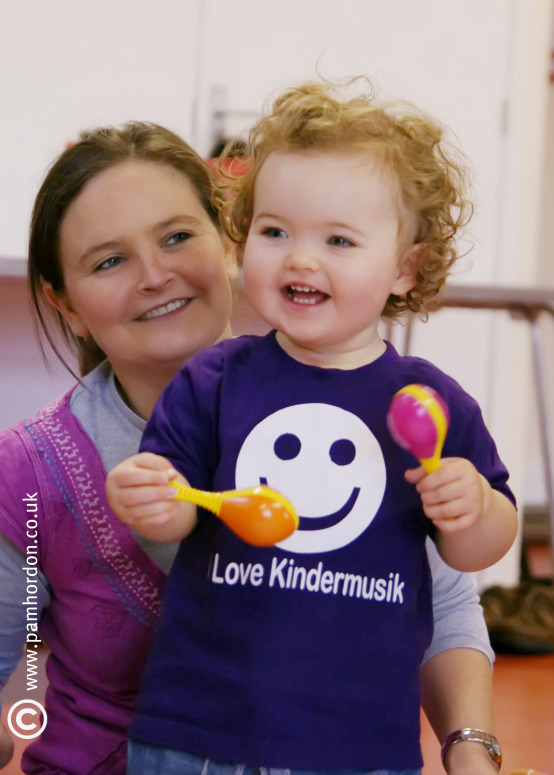

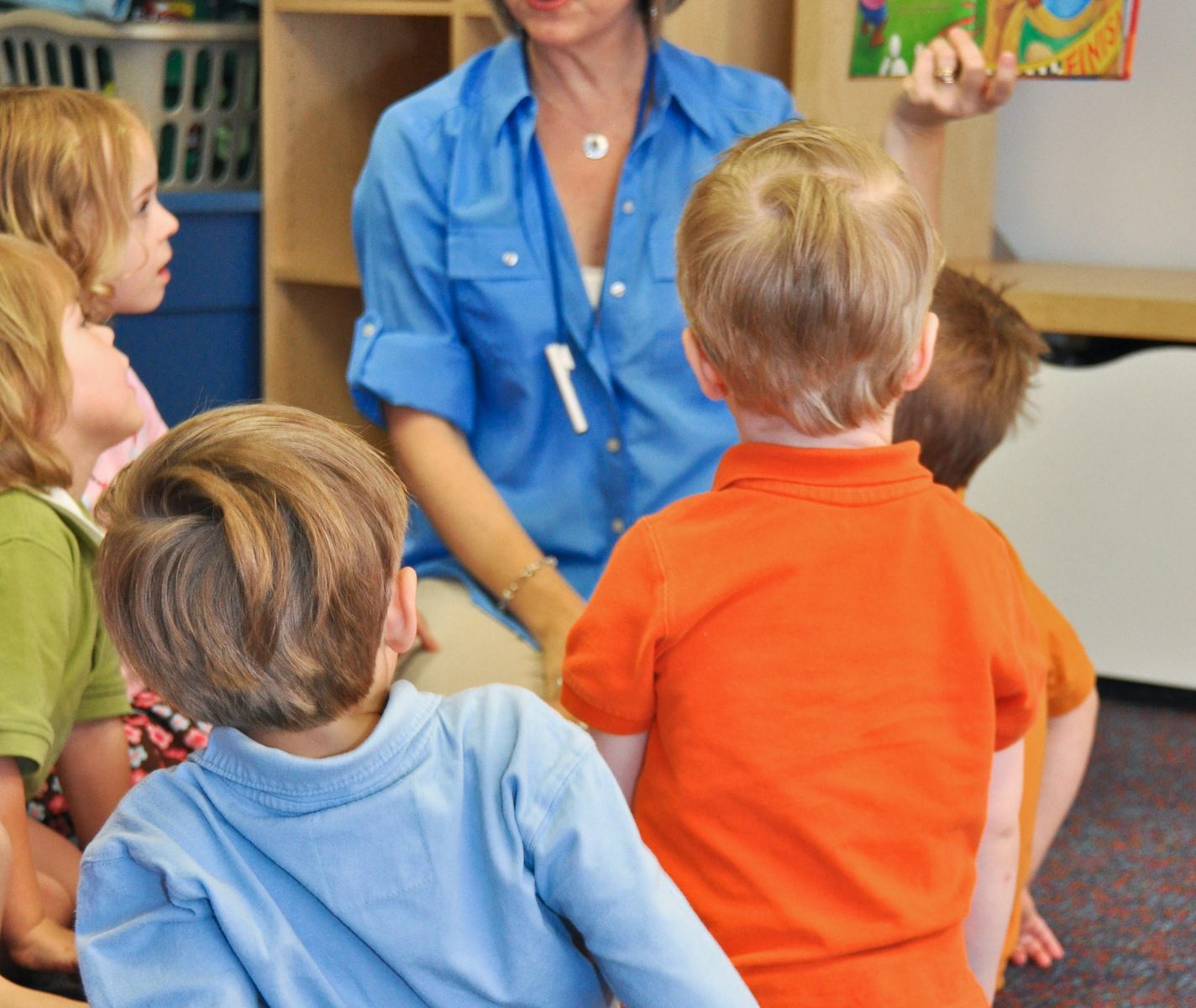
 Yes. You read the title correctly. Early childhood teachers give kids the gift of gab. Research proves it! A team of researchers at UNC’s Frank Porter Graham Child Development Institute recently published a compilation of studies that shows how early childhood educators positively impact the language development and communication abilities of infants and toddlers.
Yes. You read the title correctly. Early childhood teachers give kids the gift of gab. Research proves it! A team of researchers at UNC’s Frank Porter Graham Child Development Institute recently published a compilation of studies that shows how early childhood educators positively impact the language development and communication abilities of infants and toddlers.
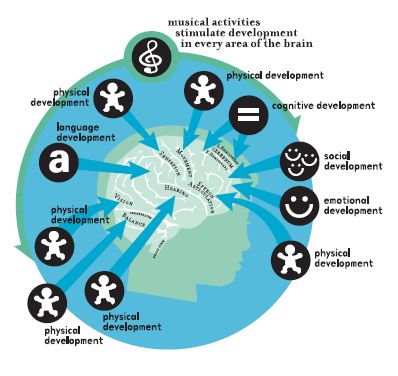


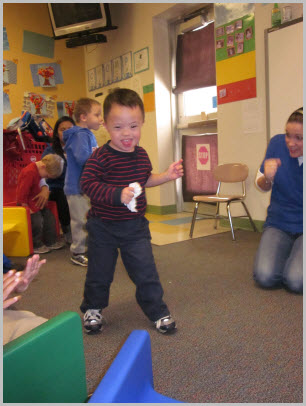


 Early language development begins long before children say recognizable words. Linguist Patricia Kuhl notes that a six-to-eight month old baby can discriminate any sound in any language. In early language development, children naturally learn phonetically by interacting with other people. In contrast, learning another language in later years, such as in high school or at university, often includes many hours of learning through grammar, syntax, and conjugating verbs. Je suis. Tu es. Il est.
Early language development begins long before children say recognizable words. Linguist Patricia Kuhl notes that a six-to-eight month old baby can discriminate any sound in any language. In early language development, children naturally learn phonetically by interacting with other people. In contrast, learning another language in later years, such as in high school or at university, often includes many hours of learning through grammar, syntax, and conjugating verbs. Je suis. Tu es. Il est. Read more about the
Read more about the 